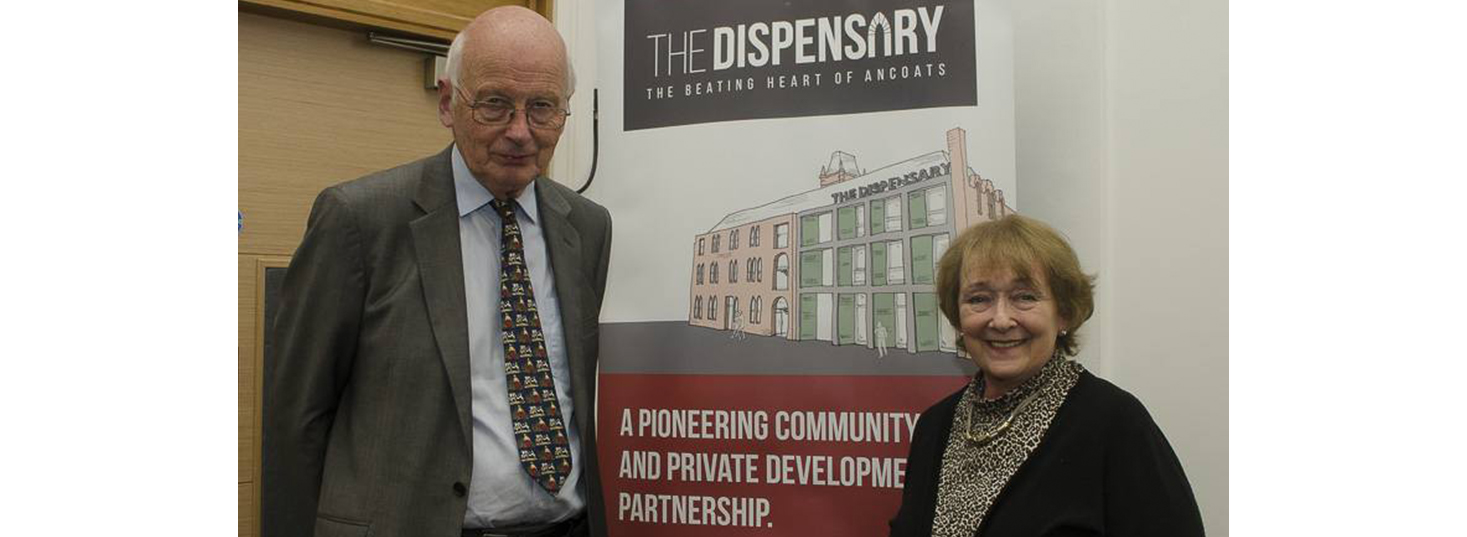Walks and Talks
June Rosen, Patron of ADT, alongside Dr Michael Whitfield, GP, and author of The Dispensaries: Healthcare for the Poor Before the NHS: Britain’s Forgotten Health-care System Dispensaries: An Alternative to General Practice?
Ancoats Dispensary Trust has been very fortunate to be supported by many individuals and organisations throughout the campaign. We were able to invite the general public to several events which included walks around the Ancoats, Ardwick, and city centre areas. These walks were led by Mark Watson, a member of the Manchester Victorian Society, and Chris Makepeace, a well-known Manchester historian.
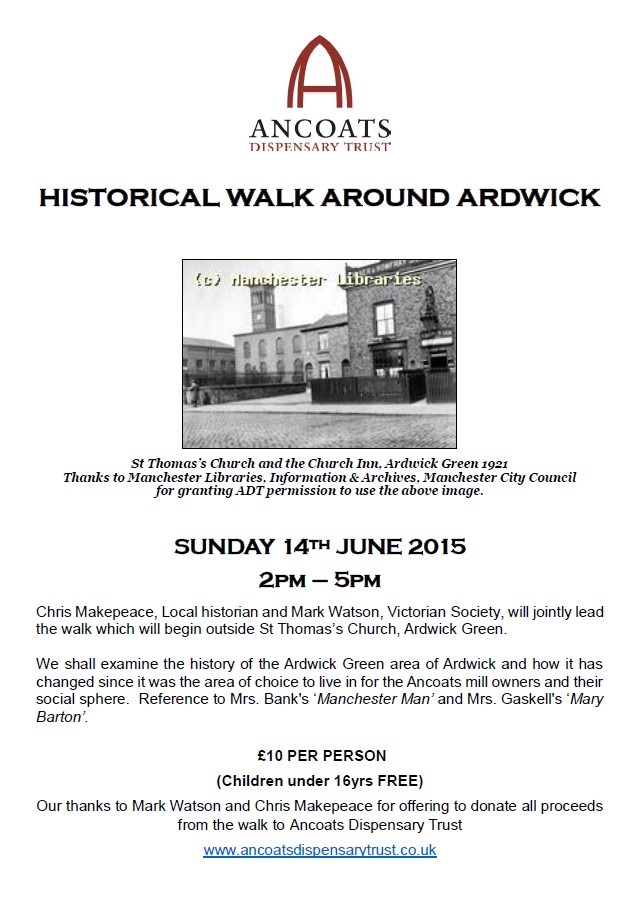
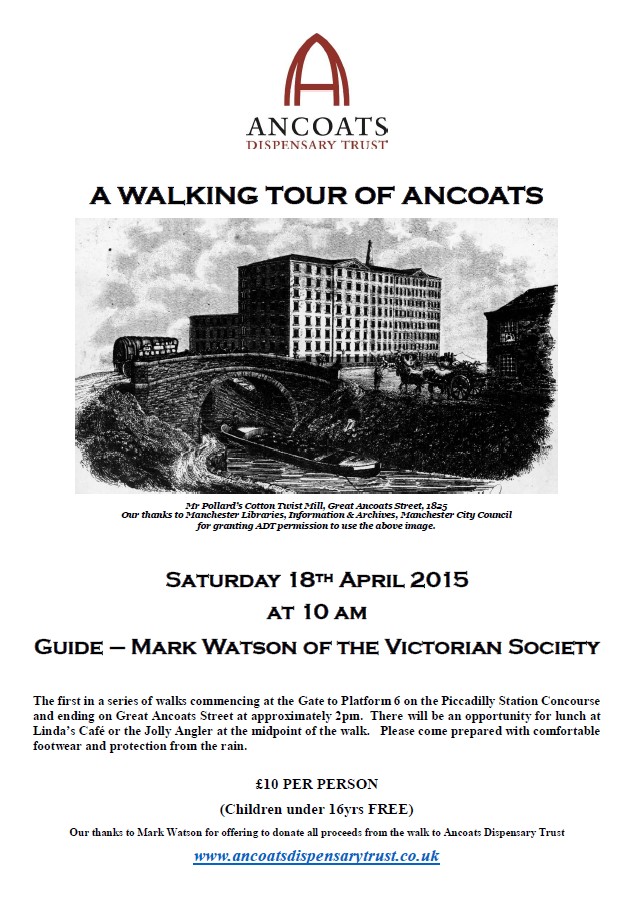
Rhys Wynne of the Canal & River Trust also led walks along the 3-mile canal network around the Ancoats area.
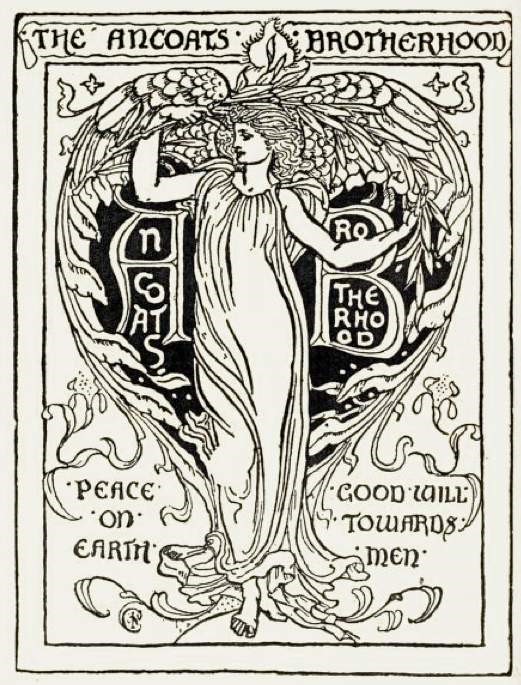
Professor Michael Rose from Manchester University gave a talk on the Ancoats Brotherhood at Gulliver’s pub, Oldham Street in 2014. Charles Rowley, both a philanthropist and liberal councillor who founded the Ancoats Brotherhood in the late 19th century, attempted to offer some respite and bring some artistic pleasure to the working class of Ancoats and surrounding areas. We are now in the territory of Marx and Engels, Charles Dickens, Elisabeth Gaskell, Walter Crane, the artist, William Morris, Ford Maddox-Brown and George Bernard Shaw.
It was Rowley that believed that social progress could be made through art and beauty. All these people either wrote about or brought the beauty of art and music concerts to Ancoats in an attempt to help make the lives of local people bearable. Rowley was a persuasive man. George Bernard Shaw once quipped “Rowley was the only man who could induce any sane man to go to Manchester”. Someone described Rowley as a ‘romantic anti-capitalist’ adding that “no matter on what spot of the globe you may happen to be, you are never safe from a summons to come to Ancoats and speak for the Brotherhood.
Subscriptions and any surplus from the Brotherhood’s activities all went to the Ancoats Hospital but how far down into the working classes the Brotherhood hoped to reach is difficult to say, considering that the population overall were struggling to find the money for a day out to Blackpool, it is doubtful very much although the intentions were honourable.
The Working-Class History Library is the place to go for more information about this organisation. There is also information on the work of the University Settlement based in Every Street Ancoats. This was linked to the University and the beginnings of social work as we now know it today.
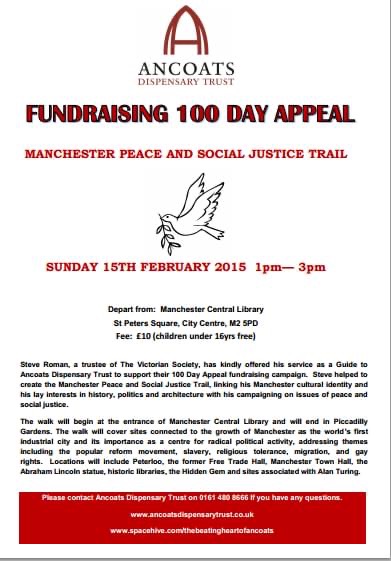
Steve Roman, a Trustee of the Manchester Victorian Society and member of the peace movement led a Peace Walk through the city centre which contributed to our fundraising appeal.
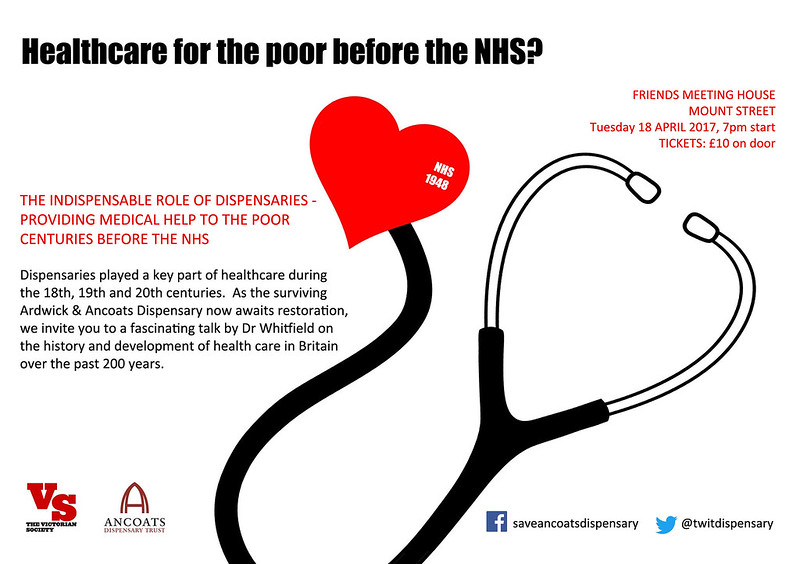
Poster designed by Sonoe Shimizu a volunteer of ADT and a member of Purell architects team.
Dr Michael Whitfield, retired GP from Bristol, visited us and delivered a talk at the Manchester Friends Meeting House about the Dispensary movement in the UK, which included Ancoats Dispensary.
Dr Whitfield was born in Cambridge, and studied at Emmanuel College Cambridge. He undertook his clinical training at St Thomas’ Hospital, London, and became a GP in Bristol in 1967. He was also a senior lecturer in general practice at the University of Bristol, and has been researching and writing about the history of medicine for more than 10 years.
Dr Michael Whitfield from the Bristol School of Social and Community Medicine researched the history of healthcare provision for the poor from around 1770, when the first dispensaries were set up, to 1948 and the establishment of the NHS. His book The Dispensaries: Healthcare for the Poor Before the NHS: Britain’s Forgotten Health-care System Dispensaries: An Alternative to General Practice? is published by AuthorHouseUK and is available now.
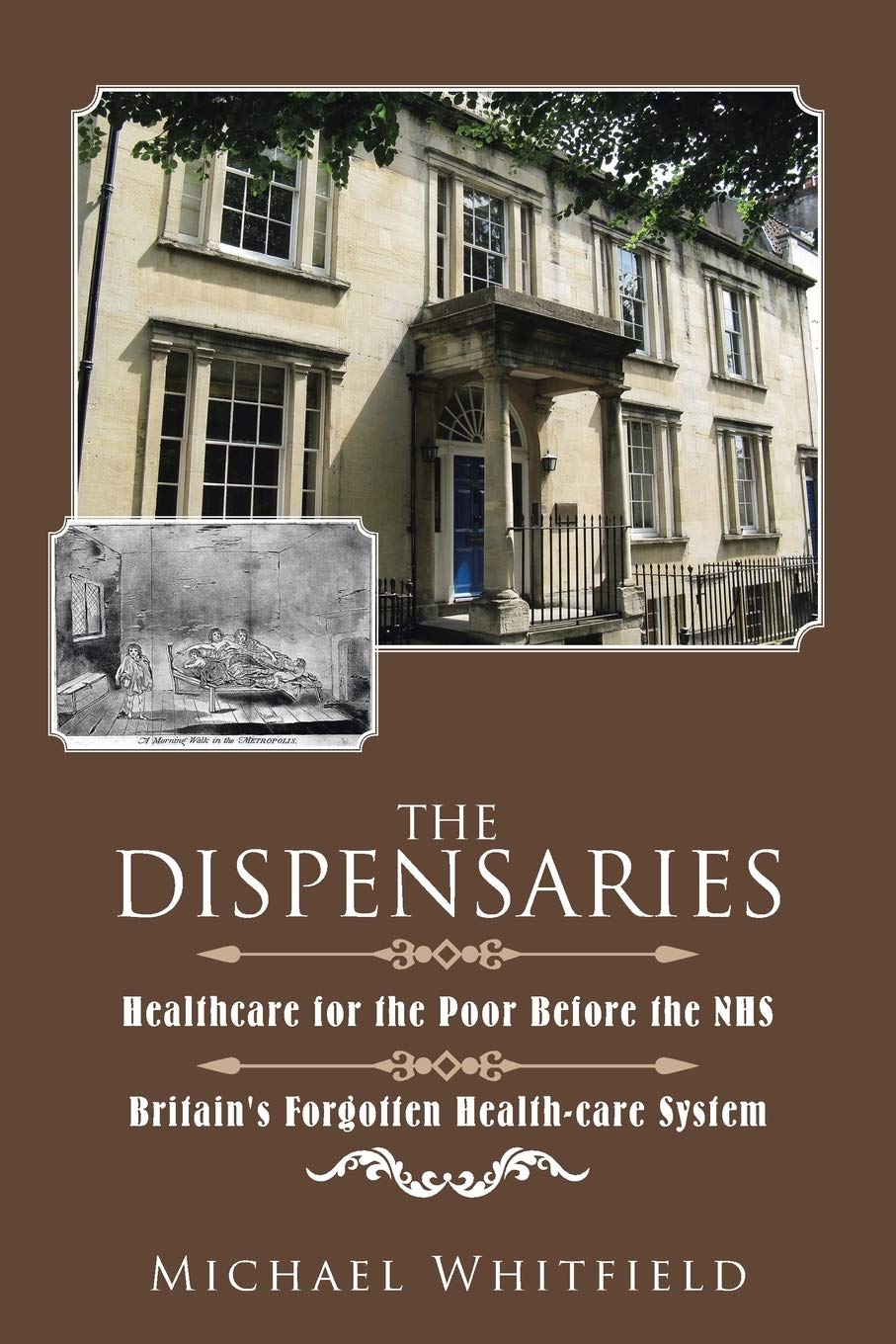
Dr Whitfield said: “Dispensaries were created in cities by relatively wealthy citizens, to look after poor sick people. The wealthy, who became subscribers to these institutions, saw it as an act of philanthropy.
“Each subscriber was given a book of tickets that could be given to sick people to enable them to access the dispensary. Many doctors gave their services freely, but an apothecary or, later on, a medical officer was employed to run the dispensary, and to see the sick in their homes if they could not visit the dispensary.
“However, they were all funded voluntarily and although they were probably better than nothing, they were not universally available – the network was extremely patchy, with some areas – such as Bristol – being served quite well, while others were not so fortunate.”
